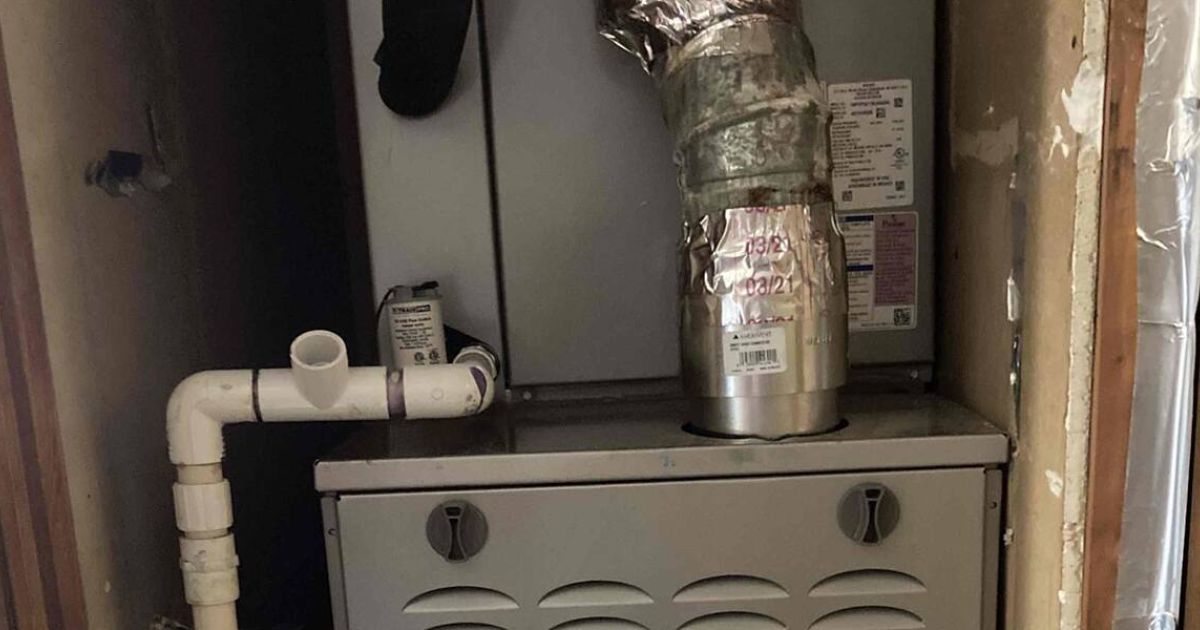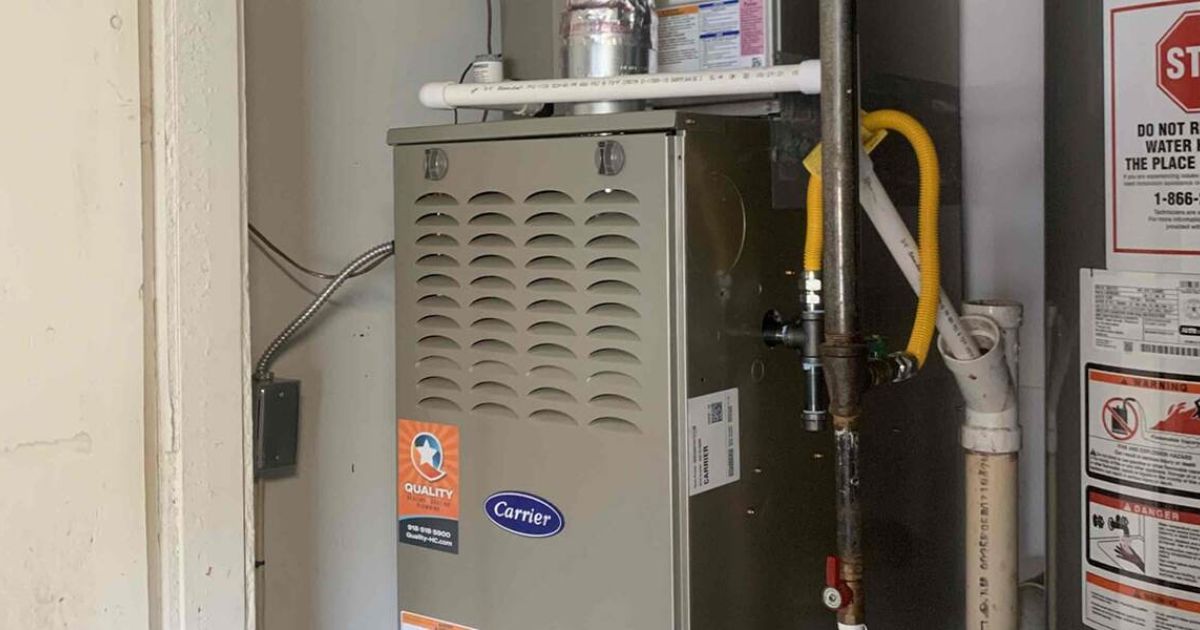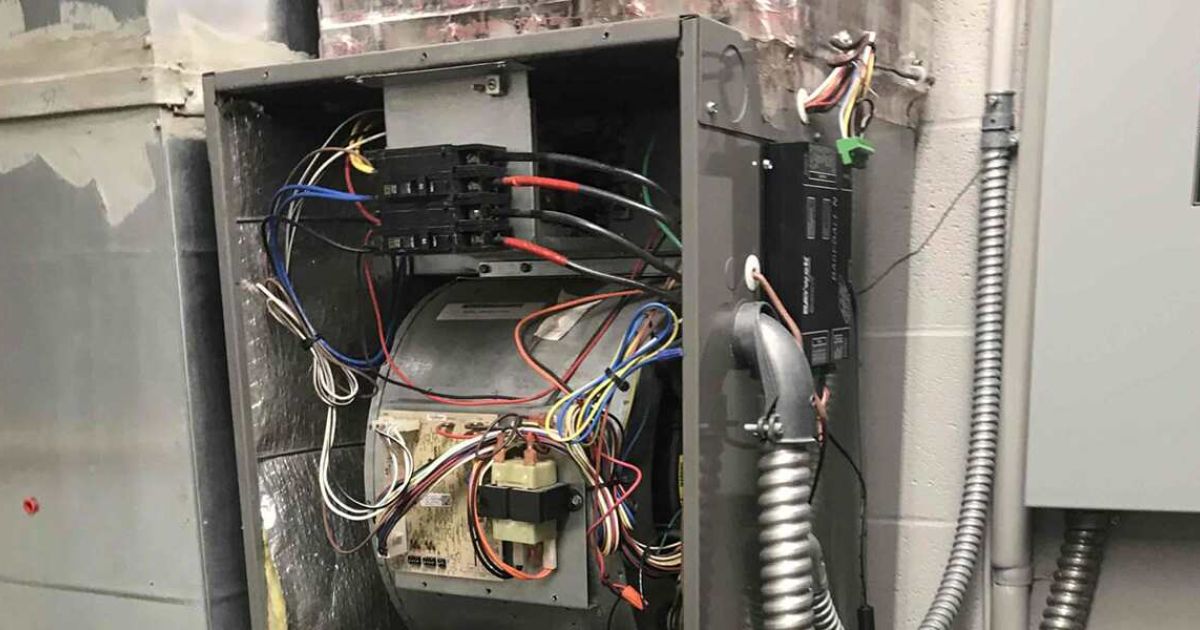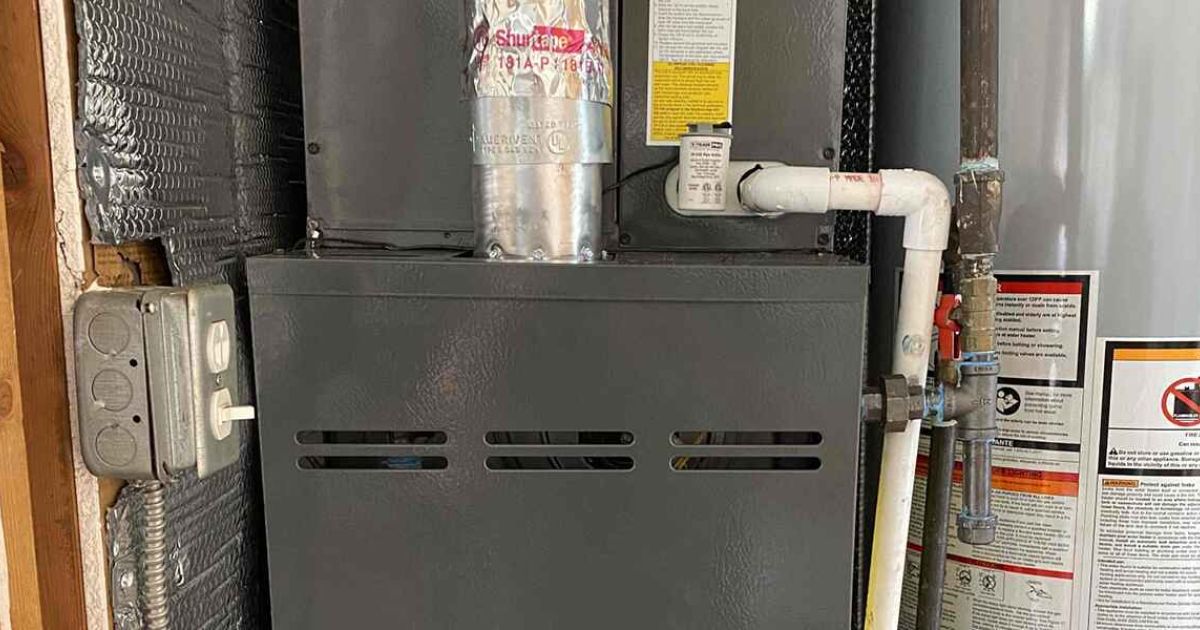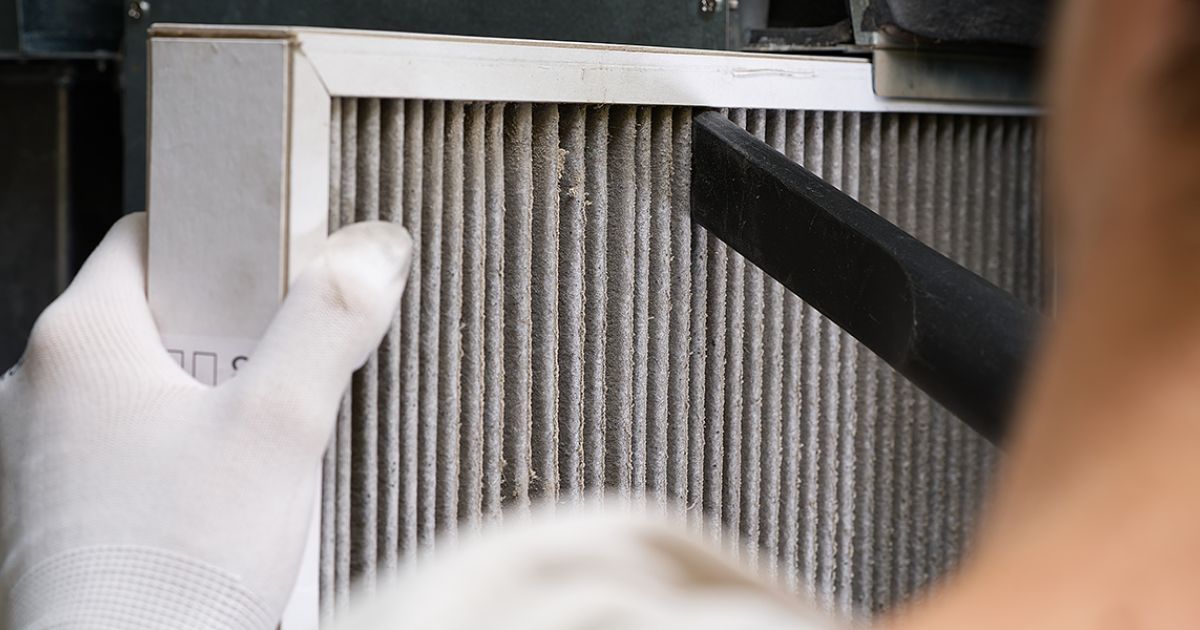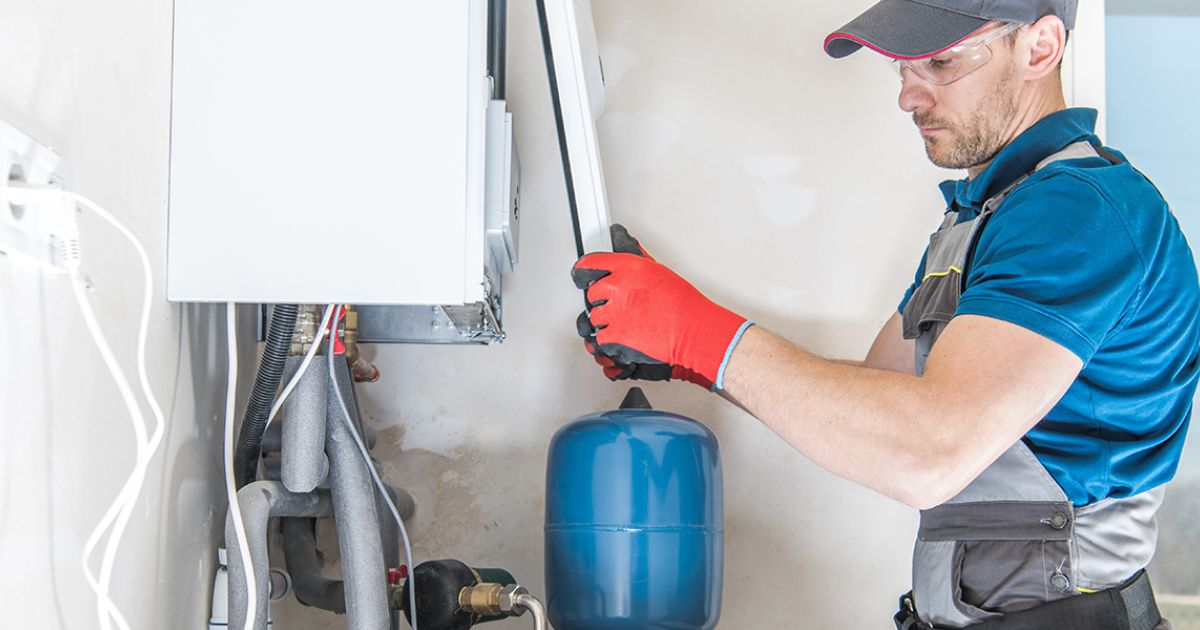Why is Your Furnace Filter Black: Reasons and What to Do

Your furnace works hard all day to keep your house warm, but many people forget they exist. So, when they go to change their filter and notice it is pitch black, they’re not sure what to do.
Why is your furnace filter black? Well, a black filter can be a sign of many issues and is something you should address sooner than later. The team at Quality Heating, Cooling & Plumbing is here to talk about some common reasons why your furnace filter is black.
What Is a Furnace Filter and What Does it Do?
Modern furnaces have a filter directly next to the blower that works to trap airborne particles and contaminants. Despite what many people think, furnace filters do not function to improve indoor air quality. Instead, it works to keep particles and contaminants out of your furnace unit.
A side effect of this process is better air quality.
Most furnace filters use a paper and polyester fabric to capture microparticles. Minimum Efficiency Reporting Values (MERV) refer to a filter’s ability to capture contaminants. The higher the MERV rating, the smaller particles the filter can catch.
Most residential furnace filters have a MERV rating of 6-12. The most efficient filters have MERV ratings higher than 16.
Common Causes of a Black Furnace Filter and How to Fix
Carbon Monoxide
If you notice black furnace filters, one of the first things you should do is check carbon monoxide levels. Furnaces can produce carbon monoxide, which then leaks into your house. Carbon monoxide can leave a sooty residue and turn your furnace filter black.
Carbon monoxide is extremely dangerous in high concentrations. If carbon monoxide levels are high, it could be a problem with your furnace. Call a professional immediately to check for any leaks and exhaust fumes in your home.
Soot and Dirt
Filter furnaces capture air particles and other debris. Over time, they can become saturated with a thick layer of black soot, dust, and dirt. The longer you go without changing your filter, the more clogged your filter will become.
Things like scented candles and fireplaces can contribute to higher air particulate levels than normal. Candles produce large quantities of soot, wax, and other substances, so your filter will become dirty if you burn candles frequently. Gas fireplaces can also produce soot during the combustion reaction.
Other sources such as pets, pollen, and dust can clog furnace filters and turn them black.
Mold
Furnace filters can also clog and turn black from mold and bacteria growth. Your HVAC system uses several components, such as condenser coils that produce condensation. This condensation can leak into your vents and cause mold growth on filters.
Mold can also grow in your ducts and near vents, and is more likely to form in places with a lot of moisture, such as basements and crawl spaces. Make sure you check your ducts and filters for moisture, especially after the rainy season. You can keep your vents and filters clean by scheduling regular HVAC cleaning and service.
How Often Should I Change My Furnace Filter?
How often you should change your furnace filter depends on the type of furnace and filter you have. It also depends on the weather conditions where you live. Most experts agree that you should change your furnace filter at least once per year. However, actual replacement rates depend on the kind of filter you use.
Cheaper 1 to 2 inch filters need replacement about once every three months, while 3 to 4 inch filters should be replaced every six months. Higher quality filters that are 5 to 6 inches thick need replacing every nine months to a year.
Note that several factors can affect how often you need to replace filters, such as:
- Home occupancy. Generally speaking, the more people you have in your home, the more frequently you should replace your filters. Humans produce several contaminants, such as hair, skin cells, and dirt.
- Pets. The presence of pets can also affect your filter replacement schedule. Pet dander and hair can work their way into your vents and clog your furnace. Experts estimate that every pet in your house reduces your filter’s usable lifespan by about a month.
- HVAC usage. Frequently running your furnace increases the amount of dust and other particulate matter going through your vents. The harder you run your furnace, the more often you will have to change filters.
- Allergies. Lastly, people with allergies may be more sensitive to poor indoor air quality than others. Frequently changing filters can reduce allergens and symptoms of allergies.
As heating repair experts in Broken Arrow, the team at Quality Heating, Cooling & Plumbing offers furnace repair and cleaning services. We can inspect, clean, and repair any furnace issue, including dirty filters!
What Happens If I Don’t Change My Filter?
Dirty furnace filters can cause other problems with your HVAC system. The filter’s main function is to keep particulate matter out of the heating system. Airborne pollutants like dust, dirt, and soot can damage furnace components and reduce furnace efficiency.
Clogged filters also block airflow, which makes your furnace have to work harder to move air. This can raise the temperatures, which can overheat and damage components. Clogged filters also mean that your furnaces have to work harder to push air, which results in higher energy bills.
Additionally, a dirty furnace filter can create more condensation than normal. This condensation can leak into pipes, causing clogs and backups. Water buildup can also damage other HVAC components such as compressors, heating elements, and electrical wiring.
Lastly, failing to change or clean furnace filters can negatively affect indoor air quality. Poor air quality can exacerbate respiratory issues and allergies, reducing comfort and causing excessive dust buildup around your home.
Furnace Repair Experts
There’s no one answer to why your furnace filter is black — but our experts can help you address and fix the cause! If you need assistance with issues with your heating systems, contact us online or call us at (918) 268-7343 today to schedule an appointment!

Cassie Pound is the Vice President of Quality Heating, Cooling, Plumbing & Electric with locations in Tulsa, Glenpool, and Bartlesville, Oklahoma.

